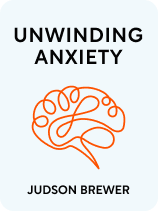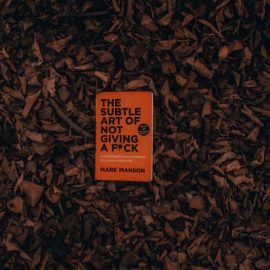

This article is an excerpt from the Shortform book guide to "Unwinding Anxiety" by Judson Brewer. Shortform has the world's best summaries and analyses of books you should be reading.
Like this article? Sign up for a free trial here.
How can you practice mindfulness every day? What are the benefits of everyday mindfulness?
Practicing mindfulness in your daily life has many benefits, including reducing anxiety. In Unwinding Anxiety, Dr. Judson Brewer offers two mindful techniques that you should incorporate into your daily routine.
Read more to learn the two mindfulness techniques that can help you cope with anxiety.
Everyday Mindfulness
Once you start practicing mindfulness in response to anxiety, Brewer recommends that you incorporate mindfulness throughout your daily life. He suggests that practicing everyday mindfulness lowers stress, increases your enjoyment of life, and helps you spot new anxiety loops as they arise. To that end, he offers a few more techniques designed to strengthen and expand your mindfulness practice.
1. Noting
Noting is a technique for avoiding distraction when you’re trying to be mindful. Brewer explains that if you’re watching the breath or other bodily sensations and you notice yourself thinking, feeling strong emotions, or feeling the urge to do something else, you should simply note the distraction by naming what it is—“thinking,” “feeling,” “hearing,” “soreness,” and so on—and gently return to your practice. Doing so encourages you to be mindful by paying close attention to whatever’s going on right now and also gives you distance from your thoughts and emotions by showing you that you can experience and acknowledge them without getting caught up in them.
(Shortform note: Noting can also help you recognize patterns in your thinking, which, as we’ve seen, is a key step in treating anxiety. Still, as meditation teacher Andy Puddicombe explains, you don’t need to note every single thought you have—just the ones that distress you or threaten to distract you from your mindfulness.)
2. Loving Kindness Practice
Finally, Brewer recommends extending your mindfulness by taking up loving kindness practice—a meditation technique whereby you offer positive wishes toward others and/or yourself to develop compassion, love, and joy. Brewer says that loving kindness is a powerful antidote to anxiety because it relaxes you, reduces stress and self-judgment, and engenders positive, gentle emotions.
More Benefits of Compassion
Brewer presents loving kindness meditation with a focus on stress relief and self-compassion. In the context of anxiety treatment, the idea is that practicing loving kindness will make you feel calmer and will help you avoid self-judgment. But practicing loving kindness has further benefits as well. For example, in 10% Happier, journalist Dan Harris outlines the following benefits that he learned from interviewing the Dalai Lama:
- Practicing feeling compassion actually makes you a more compassionate person.
- In turn, being more compassionate helps you make friends and advance at work.
- Likewise, compassion helps you make better, more objective decisions because you can see beyond your own immediate self-interest.
Similarly, in The Gifts of Imperfection, Brené Brown argues that compassion makes you a better communicator. Plus, scientific research suggests that loving kindness meditation can strengthen your brain, slow aging, and reduce migraines, along with various other health benefits.

———End of Preview———
Like what you just read? Read the rest of the world's best book summary and analysis of Judson Brewer's "Unwinding Anxiety" at Shortform.
Here's what you'll find in our full Unwinding Anxiety summary:
- How to recognize and counteract anxiety with mindfulness
- Why anxiety becomes is toxic if left untreated
- A three-step method for treating anxiety






